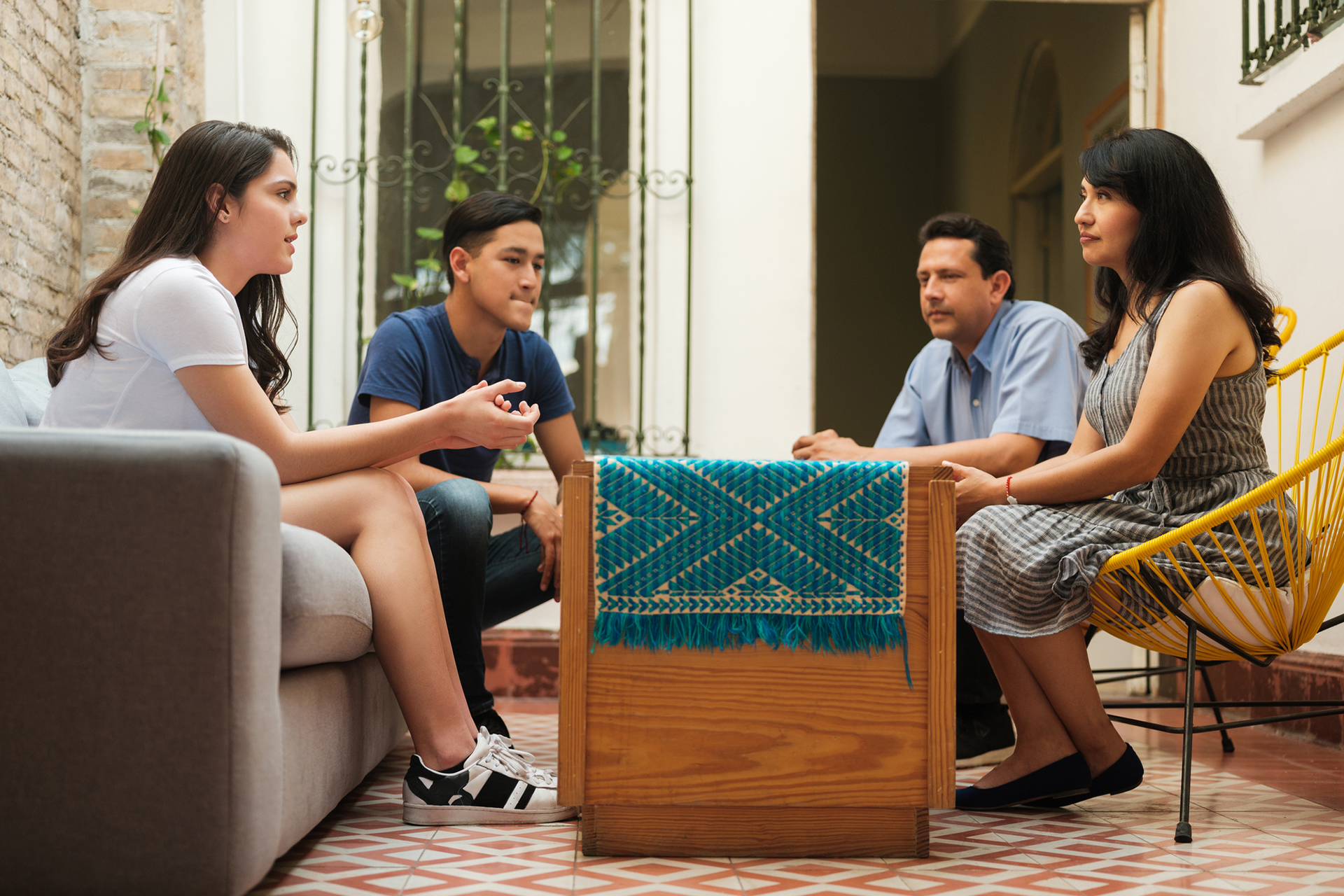
The Zoom Thanksgiving dinner with family members across the U.S. was going great — until someone announced they disagreed with shelter-in-place mandates.
Soon the topic had mushroomed into a full-blown argument before ending in hurt feelings. Since then, 3 family members haven’t spoken.
With politics, coronavirus, and global warming just a few of the topics dividing friends and family this holiday season, Lyndsey Waters, a Kaiser Permanente Sacramento and Elk Grove adult and adolescent therapist, provides insight into how to respectfully hear and share opposing opinions.
Why do talks become heated when people disagree?
Often when people close to you don’t agree with you, it can feel like they are not validating some part of you that is really important. It can feel like a rejection. That can cause one to be defensive, and then it ping-pongs back and forth until no one is listening anymore.
What are some guardrails for respectful debate?
Debate is a loaded word that can signal there is a loser and a winner. Go into the conversation and really listen, not just to make your next point or to be right. Don’t refute, interrupt, or respond.
Be curious. Ask questions. Try to really understand another’s ideas and decisions. You may not agree —and you don’t have to — but you can learn the foundation of someone’s belief, which can lead to a deeper level of understanding of that person.
How do you share your own opinion?
After listening, simply say, ‘I liked hearing your point of view. I wonder if I can share with you my own?’ Remember that you can listen but not agree, and the same goes for the other person. When sharing, it’s more effective to tell a story than to cite a data point.
What do you do if the conversation becomes an argument?
Our bodies are good at telling us when we are in a stressful conversation. Our heart races, we overheat, and our flight reaction sets in. Notice if any of that is happening. Then ask yourself if the conversation can be saved.
If you have listened but are not being heard, you can simply say, ‘I don’t feel understood right now. I wonder if I can tell you what I think in another way. Not so you will agree, but just so you understand my perspective.’
If the person is willing to listen, great. If not, you can say, ‘It seems like we are going in circles. I appreciate your perspective and I’ve learned a lot. It sounds like we just have different experiences.’
What is the approach for hitting an impasse?
If there are raised voices or other forms of anger, you can say, ‘This is uncomfortable for me. Can we shift to a different topic?’ If that’s unsuccessful, you can always excuse yourself and leave the room. It’s better to do that than to see it devolve to the point where it damages the relationship permanently.
Should we ever try to change someone’s mind?
Very rarely do we influence or change people’s minds. That usually just leads to frustration. If you really listen, and then share your thoughts respectfully, you can aim for understanding. And ultimately it is when we really understand each other and our experiences, that our minds open to new possibilities.
Final advice?
We are all really stretched thin these days and, thus, more vulnerable to misunderstandings. We need to give each other space since no one is at their best. Come at it from the perspective of having a little more grace for the other person. Appreciate that they are just trying to get through it the best they can. Then extend that patience and love to yourself.





This Post Has 4 Comments
This is a great article and exactly what I needed to read this morning. I intend to print it and hang it directly where I can see it while I am on my computer attending Teams meetings.
Thank you for this article. I would love to have it in a form I could post on my Facebook page. Is it possible ?
Hi, Karolyn. Thank you, we are glad you enjoyed it. This link should work just fine on all social media, since it is a public-facing site. Just copy its link at the top of your browser and paste into your FB post, then share.
I really appreciated revisiting this topic again today, as a reminder of listening to the other person.